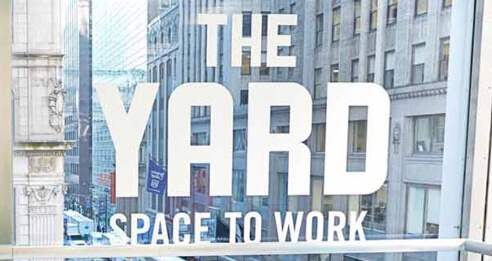
Largest Coworking Companies


As the threat of COVID-19 spreads across the United States, many coworking businesses are struggling because of temporary closures and the resulting dip in new member sign-ups. Since the entire coworking business model is based on renting a commercial space, breaking it up into smaller areas and making profit by selling individual memberships, without these membership sales, business is slowing to a standstill for most coworking office operators. This is prompting a lot of worry about permanent closures and debt for the space owners.
To help your coworking business stay afloat, consider renegotiating your commercial lease to get better rental terms. While there are no guarantees that the landlord will agree to your requests, renegotiating successfully could be the critical help you need in these difficult times.
Here are a few points to consider as you prepare to renegotiate your rental agreement.
Start the process sooner rather than later, since commercial lease negotiations may take longer than you think. With so many businesses struggling at the moment, landlords are expecting negotiations, so don’t hesitate to bring this conversation up. After all, it’s in both of your interests to maintain operations and conserve money.
Consider scheduling an in-person meeting with your landlord. You might have a better chance if the landlord sees that you are sincere and proactive. Likewise, don’t forget to maintain a good personal relationship with your property manager, who’s more likely to help you if they know and like you.
Before approaching your landlord, make sure you have a clear goal for renegotiations in mind. Whether it’s new rental rates, fee adjustments, or even a few months of free rent, decide on what it is you want to get out of your meeting, and then ask for more, so there is room for negotiation and compromises.
In New York State there is currently a 90-day moratorium on evictions of renters due to the widespread impact of COVID-19, which means coworking owners may have some temporary relief from having to pay rent on closed spaces. But, to better prepare yourself for negotiations with the landlord, make sure to study up on all of the current market conditions and become an expert at reading and interpreting your lease. If needed, consider hiring a commercial real estate attorney or a commercial real estate agent to help you understand your lease, as well as the current real estate market. This could be a worthy investment that leads to saving money during your renegotiations.
Coworking Space Management Guide
A comprehensive guide to help you manage your coworking space.
Once you find out what the general market trends are, bring this data to your meeting with the landlord. For example, if your rent is higher than what other tenants in the area are paying, you can use that as a strong argument in your renegotiations.
Look for force majeure clauses in your rental contract. If there is such a clause and it contemplates a pandemic or has a broad general language, then COVID-19 is likely to qualify as a force majeure event under your lease and it may relieve you of certain obligations, or even give you grounds for early lease termination.
Likewise, make sure to look at your rental insurance and see whose insurance is triggered by the disruptions associated with COVID-19 - your landlord’s insurance, yours, or both. If you do have applicable insurance coverage, keep in mind that there might be delays in collecting funds, as many businesses are affected at the moment.
Understand that your landlord will most likely not be able to give you everything you’re asking for, and expect to also give something in return. You might have to drive a hard bargain. Decide ahead of time on what alternative leasing agreements you can consider in order to stay in business. You may be able to ask for a grace period to pay the rent, or ask for temporary reduced rent. Likewise, be prepared to negotiate the length of your lease and potentially agree on a longer rental period, if it gives you other benefits in return. Figure out before your meeting what is the maximum amount of time you’d be willing to commit to.
If your landlord isn’t able to meet you halfway, you might have to consider a serious course of action, such as breaking your lease early and moving on to a better rental situation. Just in case, make sure to start searching for new commercial properties during the negotiation. Also be prepared to pay your landlord some money up front for terminating the rental contract early.
In the worst case scenario, when, after all the negotiations, you and your landlord just cannot agree and potential litigation is brought up, consider the fact that there may be lag times in courts that are overwhelmed and aren’t fully available to address your conflict at the moment. Legal action in times like these should be your last resort.
Above all, understand that it’s equally important to both you and your landlord to settle the renegotiation in a peaceful and productive way. It’s essential for both parties to work together to keep leases in place and employees employed, and to minimize the damage in the aftermath of the Covid-19 crisis.
Save your community manager 41 hours each week—learn how The Yard did it with cloud-based access control.
Read the Case StudyFree access to our best guides, industry insights and more.
